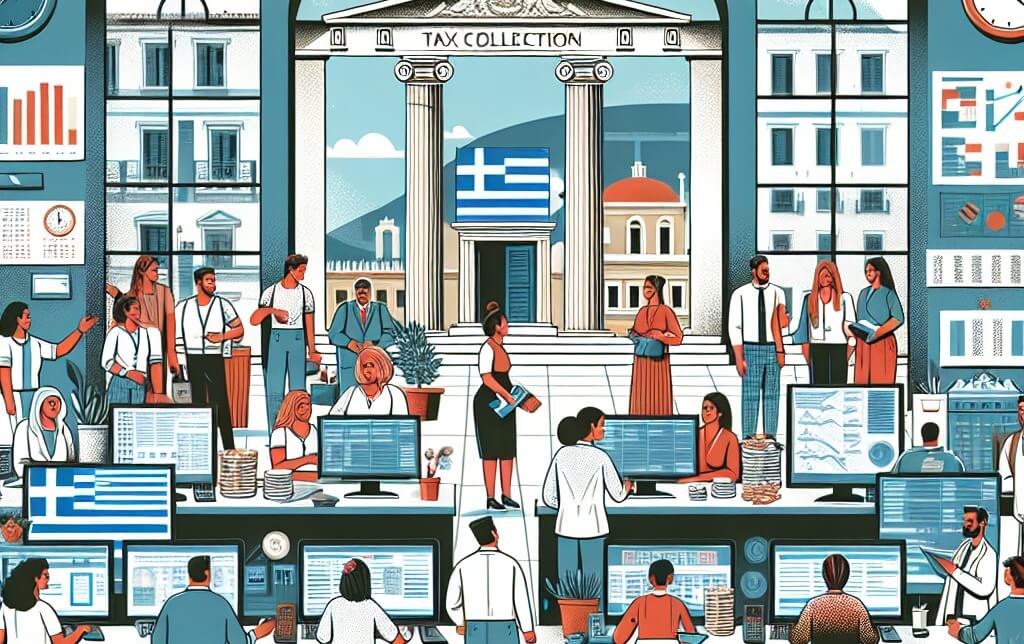
Discover Magical Greece Christmas Holidays
Embark on a journey of enchantment and wonder with Greece Christmas holidays, where ancient traditions blend harmoniously with modern festivities to create a truly magical experience. From the charming streets of Athens adorned with twinkling lights to the picturesque islands of Santorini and Mykonos, each corner of Greece exudes a festive spirit that is sure to captivate your heart. Immerse yourself in the rich cultural heritage of Greece as you savor traditional Christmas delicacies, witness lively parades, and revel in the joyous celebrations that bring communities together. Whether you seek the tranquil beauty of a snowy mountain retreat or the vibrant energy of a coastal town, Greece offers a diverse range of holiday experiences to suit every taste. Embrace the spirit of the season and create memories to last a lifetime with a magical Christmas getaway in Greece.
Introduction
The Christmas holidays in Greece are a time of cultural significance and festive celebration. With a rich history of traditions and customs, the holiday season in Greece is marked by family gatherings, religious observances, and joyful festivities. From the lighting of the Christmas tree in Syntagma Square to the traditional Christmas carols sung in villages across the country, the spirit of the season is palpable. As Greeks come together to share meals, exchange gifts, and attend church services, the true essence of Christmas is experienced in the warmth of community and the spirit of giving. The holiday season in Greece is a time of reflection, gratitude, and joy, making it a truly special time of year for all who partake in its traditions.
Traditional Greek Christmas Celebrations
Traditional Greek Christmas celebrations are deeply rooted in religious and cultural customs that have been passed down through generations. In Greece, the Christmas season is a time of joy and festivity, marked by a variety of traditions and rituals. One of the most important traditions is the observance of the Feast of St. Nicholas on December 6th, which kicks off the holiday season. Throughout the month of December, Greeks participate in various customs such as decorating their homes with lights and ornaments, attending church services, and preparing special holiday foods like baklava and kourabiedes. On Christmas Eve, families gather for a festive meal known as the "big dinner," which typically includes dishes such as roast lamb, stuffed grape leaves, and honey-drenched desserts. The celebration continues on Christmas Day with more feasting and merriment, as well as the exchange of gifts among loved ones. Overall, Greek Christmas celebrations are a time of spiritual reflection, community bonding, and joyous revelry that honor both the religious significance of the holiday and the rich cultural heritage of the Greek people.
1. Christmas Day
In Greece, Christmas Day is a significant holiday that holds both religious and cultural importance. Observed on December 25th, it marks the birth of Jesus Christ and is a time for families to come together in celebration. The day is typically spent attending church services, enjoying festive meals with loved ones, and exchanging gifts. Many households also decorate a Christmas tree and participate in various traditions such as singing carols and baking special treats. Overall, Christmas Day in Greece is a time of joy, reflection, and togetherness, embodying the spirit of the holiday season.
2. St. Nicholas and St. Basil
In the context of Greece's Christmas holidays, St. Nicholas and St. Basil are two prominent figures with significant cultural and religious importance. St. Nicholas, known as the patron saint of sailors and children, is celebrated on December 6th with gift-giving traditions similar to those of Santa Claus. On the other hand, St. Basil, whose feast day falls on January 1st, is associated with generosity and charity, particularly through the tradition of the Vasilopita cake. Both saints play a vital role in Greek Christmas customs, embodying the spirit of giving and goodwill that characterizes the holiday season in Greece.
3. Nativity Scene
In Greece, the Nativity Scene holds significant cultural and religious importance during the Christmas holidays. The Nativity Scene, or "Σταυροδρόμι" in Greek, is a representation of the birth of Jesus Christ, typically displayed in homes, churches, and public spaces. It serves as a visual reminder of the true meaning of Christmas and symbolizes the arrival of hope, peace, and joy. The Nativity Scene often includes figures such as Mary, Joseph, the baby Jesus, shepherds, angels, and animals, all gathered around the manger. This tradition dates back centuries and continues to be a cherished part of the festive celebrations in Greece, fostering a sense of unity and spiritual reflection among the community.
4. Sweet Bread and Traditional Food
During the Christmas holidays in Greece, sweet bread and traditional foods play a significant role in the festive celebrations. Sweet bread, known as "Christopsomo," is a special bread baked for Christmas, often adorned with a cross symbolizing the birth of Christ. This delicious bread is made with ingredients such as honey, nuts, and dried fruits, adding a touch of sweetness to the holiday season. Alongside Christopsomo, traditional Greek dishes like roasted lamb, spanakopita (spinach pie), and baklava are commonly enjoyed during Christmas gatherings. These traditional foods not only provide a taste of Greece's rich culinary heritage but also bring families and communities together to celebrate the joyous occasion.
5. Yule Log and Wooden Boat
In Greece, the tradition of the Yule Log and Wooden Boat holds significant importance during the Christmas holidays. The Yule Log, known as the 'gouri' in Greek, symbolizes warmth, light, and the spirit of the season. It is traditionally burned in the fireplace on Christmas Eve to bring good luck for the coming year. The Wooden Boat, or 'karavaki,' represents the journey of Saint Nicholas, the patron saint of sailors, as he travels to bring gifts to children. This tradition highlights the maritime heritage of Greece and the connection to the sea. Together, the Yule Log and Wooden Boat reflect the blend of ancient customs and Christian beliefs that define the festive season in Greece.
Public Holidays and Festivities
In Greece, Christmas holidays are celebrated with a variety of public holidays and festivities that hold significant cultural and religious importance. The holiday season typically begins on December 25th, Christmas Day, and extends through January 6th, Epiphany. During this time, many Greeks partake in traditions such as decorating their homes with lights and ornaments, attending church services, and exchanging gifts with loved ones. Public holidays such as Christmas Day and New Year's Day are observed nationally, with many businesses and government offices closed to allow for time spent with family and friends. Festivities often include traditional meals such as roasted lamb or pork, as well as special sweets like melomakarona and kourabiedes. Overall, the Christmas holidays in Greece are a time of joy, reflection, and community bonding.
1. New Year's Eve
New Year's Eve is a significant celebration during the Christmas holidays in Greece, marked by various traditions and customs that reflect the country's rich cultural heritage. In Greece, New Year's Eve is a time for families and friends to come together, enjoy a festive meal, and exchange good wishes for the upcoming year. Many people attend church services to seek blessings for the New Year, while others participate in lively street celebrations with fireworks and music. The tradition of cutting the Vasilopita, a special New Year's cake, is also a common practice, with a hidden coin inside symbolizing good luck for the recipient. Overall, New Year's Eve in Greece is a time of joy, reflection, and anticipation for the possibilities that the coming year may bring.
2. New Year's Day
In Greece, New Year's Day holds significant cultural and religious importance during the Christmas holidays. This day marks the beginning of the new year and is often celebrated with traditional customs and festivities. Families come together to share a special meal, exchange gifts, and reflect on the year that has passed. Many people also attend church services to offer prayers for the year ahead. The transition from the old year to the new is symbolized by various rituals and superstitions aimed at bringing good luck and prosperity. Overall, New Year's Day in Greece is a time of joy, hope, and renewal, as people look forward to a fresh start and a promising future.
3. Epiphany (Day of Holy Water)
Epiphany, also known as the Day of Holy Water, holds significant cultural and religious importance in Greece during the Christmas holidays. This day commemorates the baptism of Jesus Christ in the Jordan River by John the Baptist. The celebration typically involves a religious service followed by a ceremonial blessing of the waters. In coastal regions, a priest throws a cross into the sea, and young men dive into the cold waters to retrieve it, symbolizing the baptism of Christ. This ritual is believed to bring blessings and good fortune to the community for the coming year. Epiphany serves as a reminder of the spiritual significance of the Christmas season and reinforces the faith and traditions of the Greek Orthodox Church.
Winter Season in Greece
The winter season in Greece, particularly during the Christmas holidays, offers a unique and enchanting experience for visitors and locals alike. The country's rich cultural heritage is on full display during this time, with festive decorations adorning the picturesque streets and squares, and traditional celebrations taking place throughout the country. The mild Mediterranean climate allows for pleasant strolls through historical sites and charming villages, while the snow-capped mountains provide a scenic backdrop for outdoor activities such as skiing and snowboarding. Whether enjoying a warm cup of mulled wine in a cozy taverna or participating in a lively street festival, the winter season in Greece is a time of joy, tradition, and community spirit.
1. Greece Winter Holiday Season
The winter holiday season in Greece, particularly during Christmas, is a time of festive celebrations and cultural traditions. The country is adorned with twinkling lights, festive decorations, and lively markets selling traditional Greek treats and gifts. Greek families come together to enjoy special meals, exchange gifts, and attend church services. The streets are filled with music, laughter, and the scent of delicious holiday foods. Visitors can experience the unique blend of ancient Greek customs and Christian traditions that make the holiday season in Greece a truly magical time. From the bustling cities to the charming villages, Greece offers a warm and welcoming atmosphere during the winter holidays, making it a delightful destination for those seeking a festive and culturally rich experience.
2. Orthodox Church Influence
The Orthodox Church has a significant influence on the Christmas holidays in Greece. As a predominantly Christian country, the Orthodox Church plays a central role in shaping the traditions and celebrations associated with Christmas. The church holds special services and ceremonies during the holiday season, such as the midnight liturgy on Christmas Eve. Additionally, many Greek families attend church on Christmas Day to participate in the festive mass and receive blessings. The Orthodox Church also emphasizes the importance of spiritual reflection and charitable acts during the Christmas season, encouraging believers to focus on the true meaning of the holiday. Overall, the Orthodox Church's influence on Christmas in Greece is profound, enriching the holiday with religious significance and cultural traditions.
Conclusion
In conclusion, the Christmas holidays in Greece offer a unique blend of traditional festivities and cultural experiences for both locals and tourists. From the vibrant decorations adorning the streets of Athens to the delicious array of seasonal dishes served during festive gatherings, the spirit of Christmas is truly alive in this ancient land. Whether one chooses to participate in the religious ceremonies at the grand churches or simply soak in the festive atmosphere at the local markets, there is no shortage of ways to celebrate the holiday season in Greece. Overall, the Christmas holidays in Greece provide a rich tapestry of traditions, flavors, and experiences that make it a truly magical time of year in this Mediterranean paradise.









